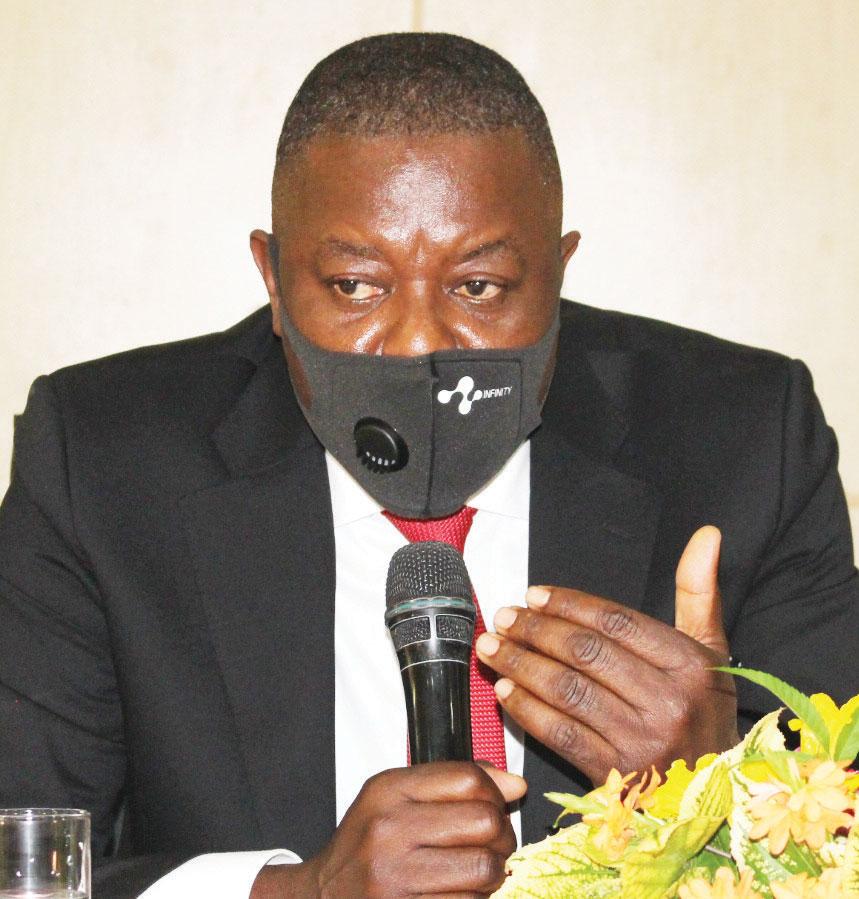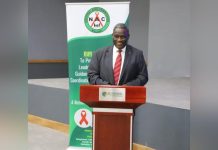Africa-Press – Malawi. The Tonse Alliance-led administration, which promised to fight corruption in the run-up to the June 23 2020 presidential election, is letting corruption flourish on its watch, results of Afrobarometer survey indicate.
According to the Afrobarometer report, even over half of supporters of alliance partners Malawi Congress Party (MCP) and UTM, and half of the opposition Democratic Progressive Party (DPP)’s supporters, believe that corruption has become worse under the current administration than during the DPP regime.
The Afrobarometer survey report was issued by the Centre for Social Research, which is under the University of Malawi, after gauging people’s perceptions in February this year.
The report says most Malawians feel that the Tonse Alliance administration was doing a “poor job in fighting corruption”. The report says two thirds of Malawians (66 percent) say that cases of corruption have increased over the past year.
It adds that 58 percent of MCP, 74 percent of UTM and 72 percent of DPP sympathisers say corruption cases have increased in Malawi in the past 12 months.
Further, the report says 54 percent of Malawians feel that the fight against corruption is worse under the Tonse administration than during DPP’s tenure of office.
“Two thirds (66 percent) of citizens say the government is performing ‘fairly badly’ or ‘very badly’ at fighting corruption. More than eight in 10 Malawians (83 percent) agree with the idea that Cabinet ministers and government officials charged with corruption should be fired immediately,” the report reads.
While immediate dismissal of Cabinet ministers and government officials charged with corruption receives overwhelming popular support, a slimmer majority, 57 percent, say suspects who refund proceeds of corruption should be granted amnesty.
Topping the list of corrupt institutions is the Malawi Police Service at 42 percent followed by Malawi Revenue Authority at 39 percent, business executives at 38 percent, civil servants at 37 percent, Office of the President and Cabinet at 37 percent, members of Parliament at 36 percent, traditional leaders at 32 percent, religious leaders at 32 percent, councillors at 30 percent, judges and magistrates at 30 percent and non-governmental organisations at 25 percent.
According to the report, almost eight in 10 Malawians (78 percent) say that people risk retaliation, or other negative consequences, if they report corruption to the authorities.
“For a government that campaigned on zero tolerance for corruption, and a country badly in need of resources to improve service delivery, these findings represent a renewed call to action,” the report reads.
Speaking in Dowa District yesterday during a crop inspection tour, President Lazarus Chakwera warned that he would not protect anyone involved in corruption. He said those who indulge in corruption, thinking that he would protect them, were making a mistake.
Government spokesperson Gospel Kazako said Malawians have to understand that the survey report is not addressing the issue of statistics related to corruption incidences in the country.
“Afrobarometer [people] were dealing with the perception of the people on the fight [against corruption]. We have embarked on a crusade against corruption.
“It is, therefore, not appropriate for us to reject or accept the results because doing so will be closing the gap between perception and reality,” Kazako said.
“The same concept of perception by Transparency International scored the President Lazarus McCarthy Chakwera’s Tonse Alliance government very highly, where Malawi scored 35 percent against the average 30 percent during the DPP. We moved in 2021 from [the] number 129 [on the list of] corrupt nation [s] during the DPP government to 110 during the time of President Lazarus Chakwera government, a jump of 19 places up the scale,” he added.
Kazako said it is during Chakwera’s reign that Anti- Corruption Bureau (ACB) Director General Martha Chizuma got global recognition for her work. “This is because of the support she receives from the government to do her work freely and independently,” Kazako said.
He said Chakwera had not shielded any official from his administration who has been implicated in corrupt activities. ACB Chief Corruption Prevention Officer Susan Phiri welcomed the survey results, saying they reflect how things are on the ground.
Phiri said the rise in cases of corruption could also mean that an increased number of people were now reporting it because of increased levels of awareness.
Phiri said that it was true that whistle blowers needed protection, indicating that the bureau was taking steps to ensure that such people were protected. She also said the bureau agreed with people’s recommendation to debar businesses.
To that effect, she said, ACB was working with the Public Procurement and Disposal of Assets Authority to ensure that businesses are debarred and convictions are secured.
“We welcome the results and, where there is a need for improvement, we will improve,” Phiri said.
Institute for Policy Research and Social Empowerment Director Henry Chingaipe said the law to bar businesses involved in corruption was available but lacked operationalisation.
Centre for Social Accountability and Transparency Executive Director Willy Kambwandira said the Tonse Alliance-led administration needed to practise what it preached on the campaign trail.
“We are not surprised by findings of the Afrobarometer report. This is what we have been saying, that corruption is getting out of control in the country. There is a lot of talk about it with no tangible action to decisively deal with it,” he said.
For More News And Analysis About Malawi Follow Africa-Press






